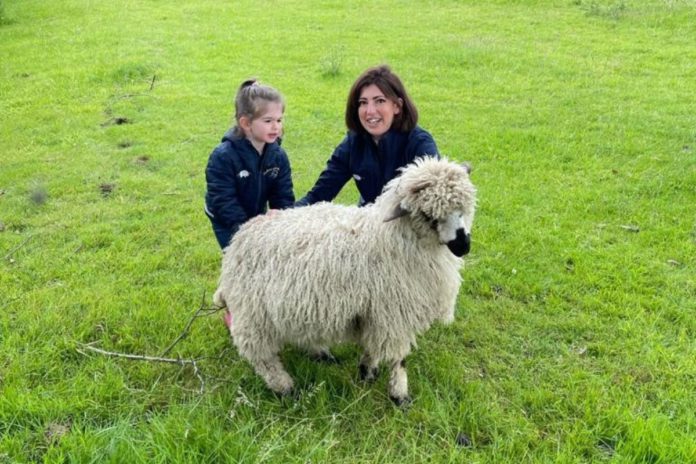In this week’s Women in Ag segment, That’s Farming, speaks to Sarah Jane Gibson (Hollow Garden Farm), a Blue Texel and Valais Blacknose breeder. The qualified psychotherapist discusses her involvement in the equine circles, becoming a full-time farmer and juggling motherhood.
Sarah Jane Gibson’s sheep breeding venture began in 2010 when she purchased 20 Cheviot ewes with her father.
The 39-year-old qualified psychotherapist became a full-time farmer in 2018 following the birth of her daughter, Emily.
When the Wicklow native was pregnant in 2018, she sold most of her flock of commercial ewes due to the health risks of lambing, such as toxoplasmosis.
She retained 40 ewes and, after having her daughter, realised she did not have the same time for a large flock while she was young, so she decided to diversify into different breeds.
She previously worked in the equine industry for fifteen years, primarily in breeding. For the past 22 years, she has been breeding thoroughbred horses with her father in Hollow Garden Farm.
“Both my grandfathers farmed. My earliest memories of farming are helping my grandad with sheep,” she told That’s Farming.
“I idolised them both. Even then, all I wanted to do was farm. My other great love at that time was horses and ponies. This has continued throughout my life,” she added.
Blue Texel and Valais Blacknose
Sarah Jane purchased some Blue Texel ewe lambs and a ram initially. “I loved the look of the breed and did not know anyone at the time breeding them.”
“They are a very docile sheep, hardy, easily lambed, and they finish easily on grass. Also, they are ideal terminal sires and cross well with any breed.”
While she has a pedigree flock, she has also crossed the breed on her commercial ewes and has brought subsequent progeny through to slaughter.
In 2019, she discovered the Valais Blacknose sheep and later acquired foundation females and a ram in Northern Ireland after some difficulty.
She has also experimented with crossing the Valais with Jacob, Dorset, and Hampshire Down ewes and some half and three-quarter-bred Valais females.
“The Valais Blacknose has been described as the cutest sheep in the world, which there is no doubt. The crosses are equally as cute and more affordable. I have a gorgeous batch of lambs for sale this year.”
“The Valais Blacknose sheep has an amazing temperament; they love attention and are wonderful to work with. It is hard not to smile when you are around them.”
“They are a big investment but are much sought-after by sheep lovers around the country. I have had customers from farms, pet farms, fibre flocks for their unique wool and lots of sheep lovers just like me.”
“Valais Blacknose can have foot issues, but I have found keeping to a foot program of pairing and foot bathing regularly alleviates issues. They are also shorn twice a year.”
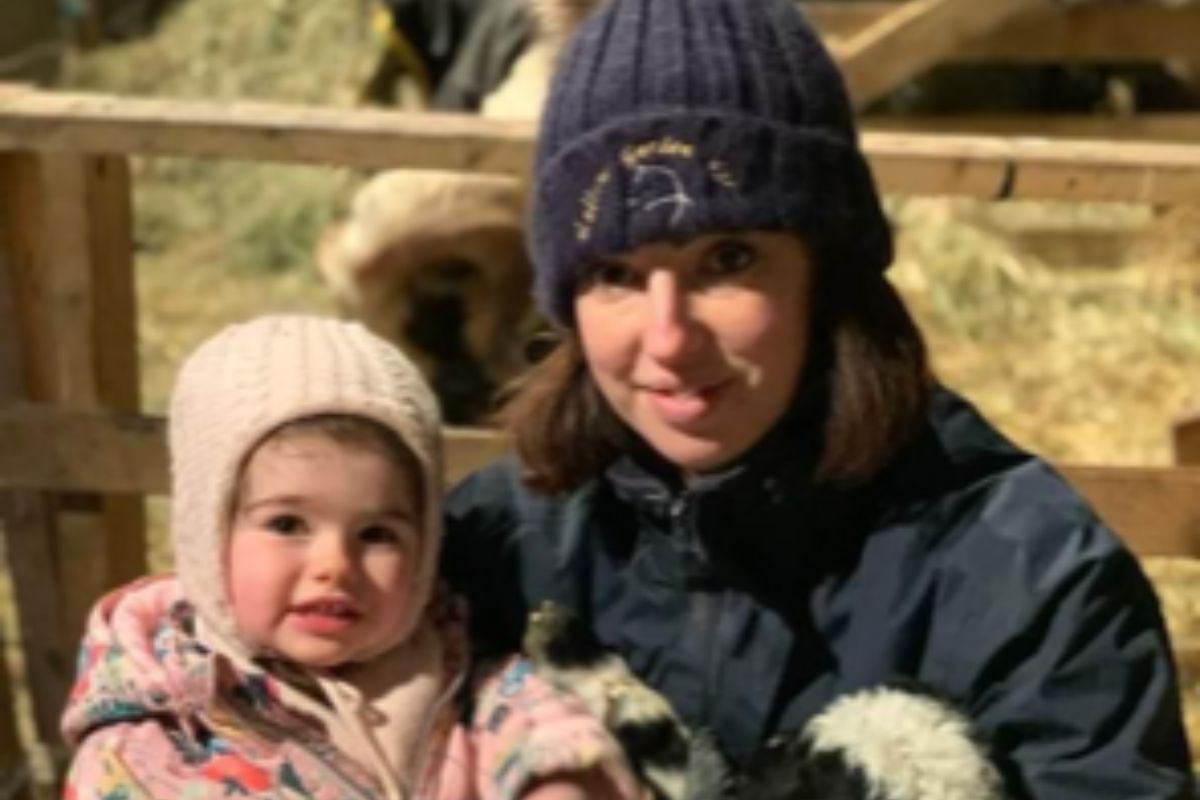
Valais Blacknose breeder
According to the farmer, breed standards are strict for pedigree Valais Blacknose. Therefore, sourcing good genetics and conformation “can be difficult, but worth it when producing premium stock”.
“It has been a slow process building my flock, but I have handpicked each, and I am extremely proud of my stock,” she added.
“We usually lamb in mid-February. I lamb indoors and do not use cameras. We move to my parent’s house to lamb. I use cameras when foaling as I usually watch individual mares. To note, I try to keep lambing as compact as possible.”
“I do not have a teaser ram, but I run rams in a paddock alongside ewes for about three weeks before letting them out. Also, I find using mineral licks with fish oil and flushing ewes before tupping help.”
Lambing season
She plans to start lambing in January, with recipient ewes carrying Valais embryos; this will be her first time trying this breeding method and using AI on home-bred ewes.
She is passionate about genetics in sheep and horses and hopes to keep striving to improve her progeny.
“At the moment, to the best of my knowledge, there are only around 25 pedigree breeders in southern Ireland, so introducing new bloodlines is imperative.”
“I will lamb the Blue Texels and the Valais-crosses in February. I love lambing, although it can be an emotional rollercoaster.”
“It can be a month or two of extreme highs and lows. You can spend day and night tubing, injecting, and praying a lamb or ewe will survive to walk into the shed at 4 am to see it taking its last breaths, and your heart breaks.”
“That is something unique to working with livestock. You cannot give up on anything. As my grandad used to say, ‘where there is life, there’s hope’. On nights like that, I have questioned why I put myself through it.”
“However, quickly something else needs you, or you have a difficult lambing and both the ewe, and lamb survive.”
“Then, you are on top of the world and cannot imagine doing anything else. I think it is important to acknowledge the losses and their impacts that can arise in farming.”
Sarah Jane runs the farm predominantly alone but has a “great support network” – a mentor and her father – who assist when necessary.
“I enjoy buying and selling sheep, and I enjoy meeting other farmers with similar interests.”
“My most wonderful moment farming was sitting on a bucket with my daughter this year watching a Jacob ewe lamb. She said, “wow, mammy, that’s beautiful”. I was blown away. She adores sheep,” she added.
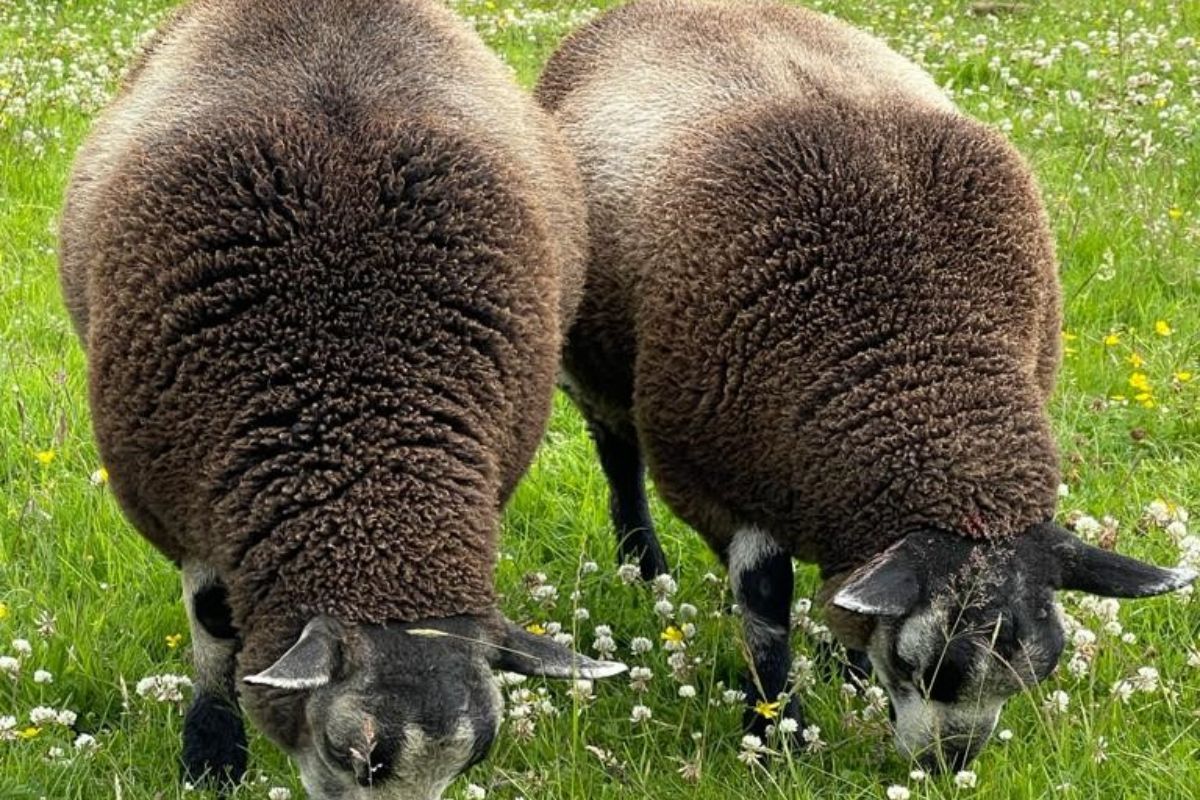
Challenges
Sarah Jane acknowledged that there are “many” challenges in farming. She has unfortunately experienced several dog attacks on her sheep over the years.
“This has resulted in finding dead or traumatised injured sheep and having to get some put to sleep. To me, it is unacceptable for dog owners to let them out unsupervised to attack sheep.”
“It is soul-destroying to see your flock attacked. I have invested in cameras on some land because of dog attacks.”
In her experience, farming is a constant development of new skills. When she first began farming on her own, tasks, she found challenging included reversing a trailer and transporting lambs to the factory.
“You learn to overcome these things if you want it bad enough. The challenges keep coming, but you must keep learning and adapting.”
“More recently, becoming a mother and continuing to farm has been an extremely positive experience, but it can pose challenges.”
“Most days, it is idyllic seeing my little girl interact with sheep, horses, and nature.”
“Some days, it is cold and wet, or there is something ill, and it takes longer than expected. There are dangers like feeding ewes and keeping Emily safe and not getting trampled.”
“We have learned to adapt and find a way through different situations. I do feel this is a common challenge facing women in agriculture.”
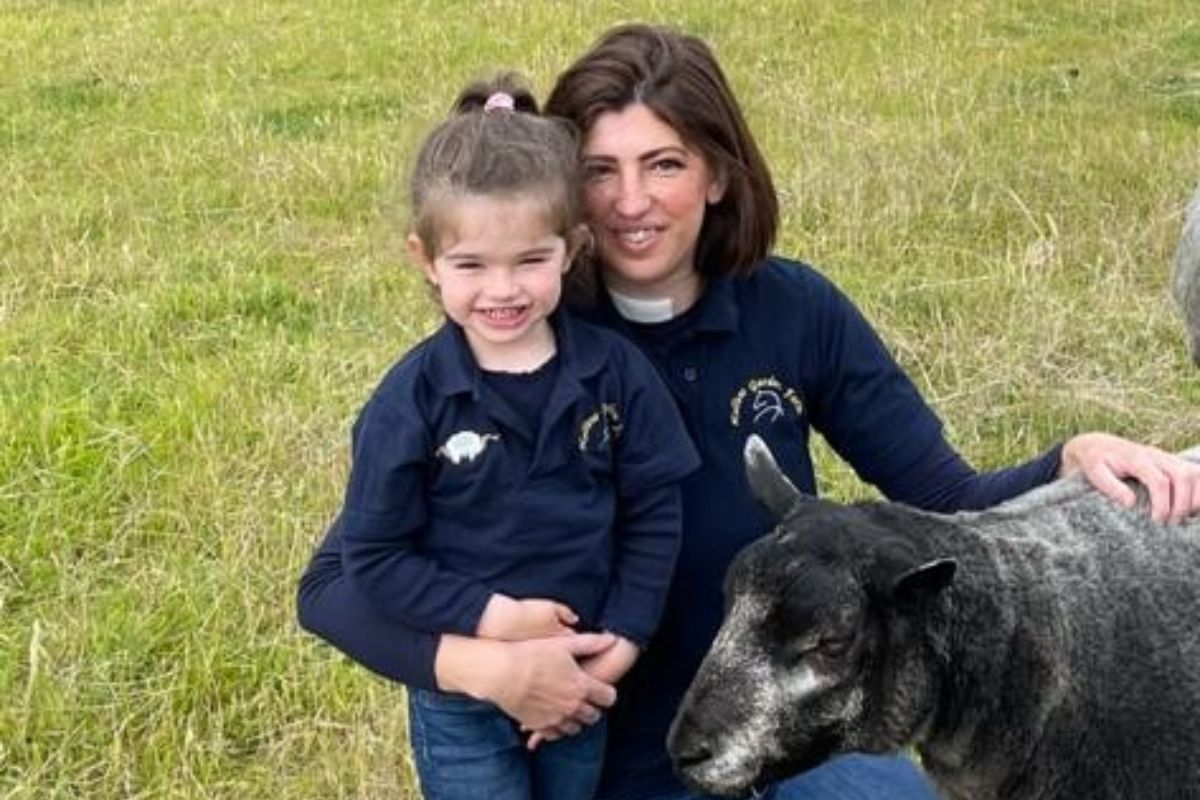
Women in agriculture
As a woman in agriculture, her experiences have been “very positive and respectful”.
“There is no denying sheep farming is a male-dominated industry, but it is not a competition. 99.9% of sheep farmers I have encountered really like sheep, and that is a good place to start.”
“I do feel there are more and more women choosing careers in agriculture. It is so wonderful to see increasing numbers of women at auctions, at the mart or purchasing or selling sheep on other platforms.”
“On reflection, I feel inequality between males and females was something I was more conscious of when I began working in the equine industry over 20 years ago.”
“Perhaps not always being treated equally to my male colleagues. This became positive as I learned by working hard and giving something your all, barriers like gender can be dissolved.”
She believes that with experience comes acceptance, and she strives to be open to learning and listening to constructive feedback and advice.
“If something does not work out, I try to find the lesson and change it next time. Gender equality has progressed positively, and women in agriculture are excelling in the field.”
“I know so many amazing inspirational female farmers. A career in agriculture can be very physically demanding, but women are tough.”
“I think women in agriculture bring so much positivity to the industry. They have the ability and aptitude to look at situations differently to some of our male counterparts which adds a refreshing mix.”
“They have attention to detail and empathy and, in my opinion, are a wonderful asset in a lambing/foaling shed and sheep breeding.”
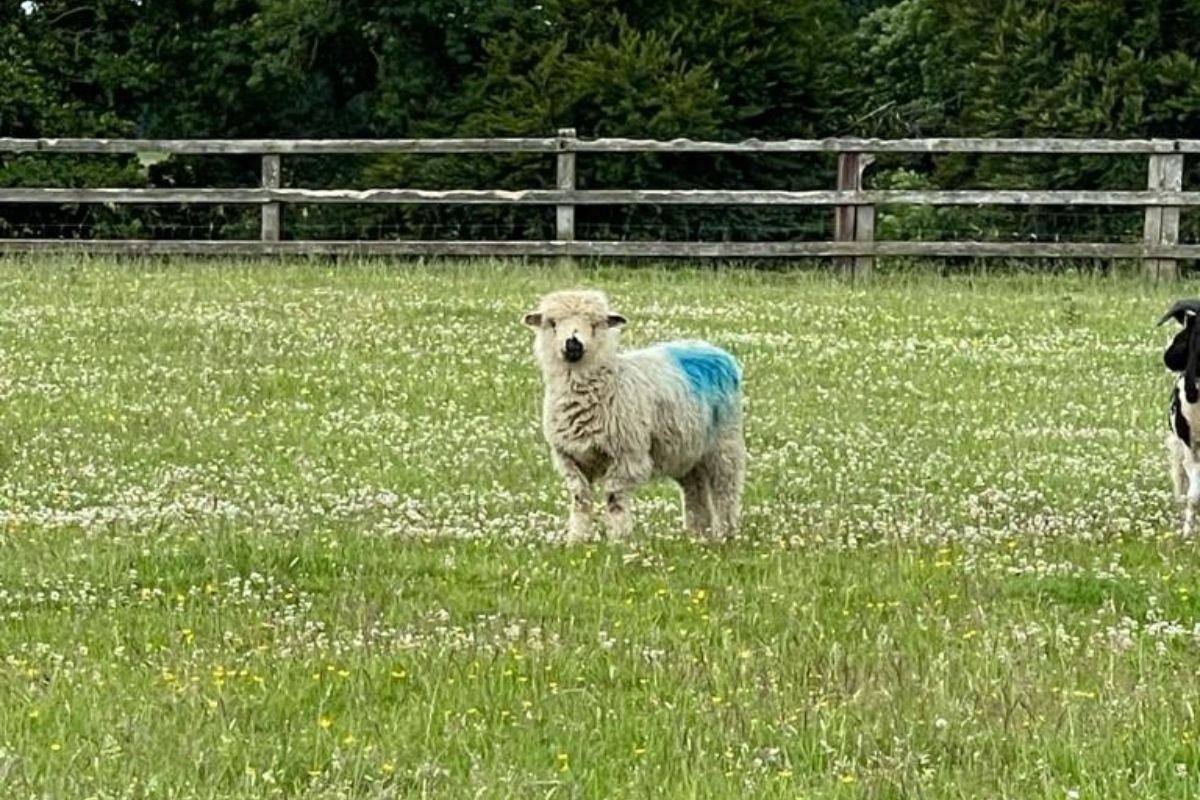
Future
Her five-year plan for Hollow Garden Farm is to continue to develop her flock of Blue Texel and Valais Blacknose sheep.
“I hope to continue to farm for a very long time, continuing to learn and watch my daughter grow up with sheep around her.”
She relishes the idea of incorporating the two fields of farm and the therapeutic benefits of being around animals someday.
“Mental health is still a great passion of mine, especially in the agricultural sector. It can be an isolating profession, and the benefits of therapy can be life-changing.”
“My life in agriculture is a constant learning experience. It is about mental agility, trying to always think ahead about grass and flock management, creating the optimal breeding environment.”
“Continuously monitoring the health and welfare of my animals from weather conditions, dog attacks, seasonal ailments, and diseases.”
“Farm life is also about the upkeep and maintenance of the farm’s infrastructure. But most of all, farming life is my life; it is why I get up in the morning and whilst I am continuously challenged, I am also continually fulfilled.”
“Sheep farming is not an easy career, but the highs most definitely outweigh the lows,” the Blue Texel and Valais Blacknose breeder concluded.
To share your story, email – [email protected]


